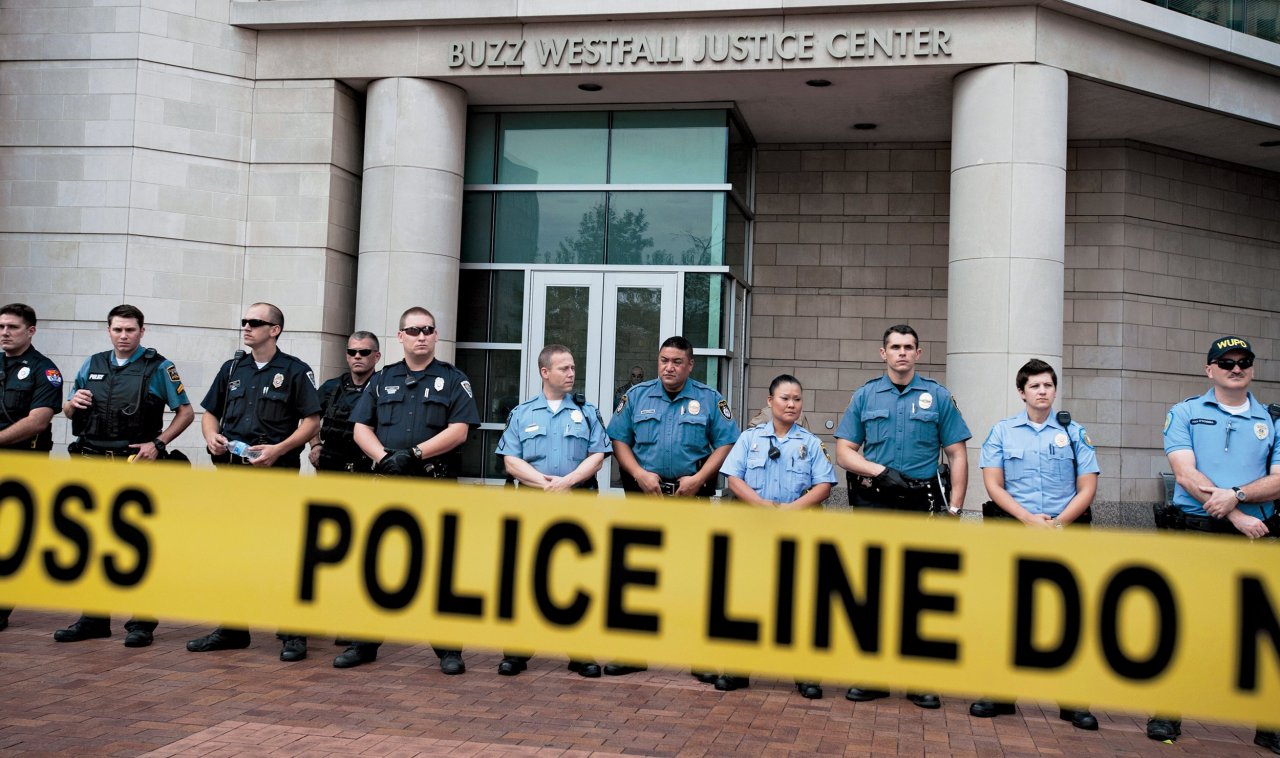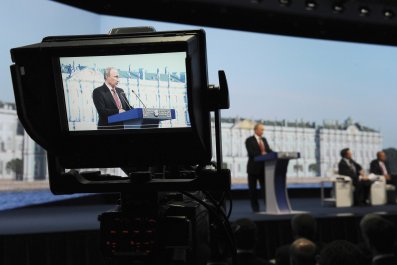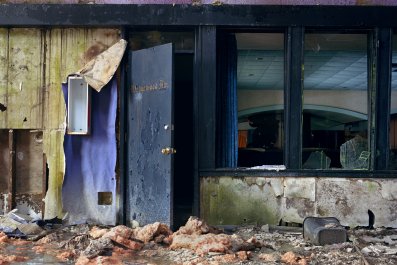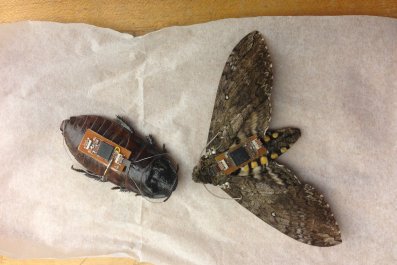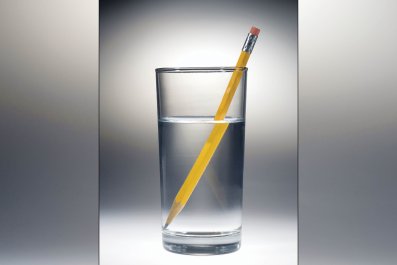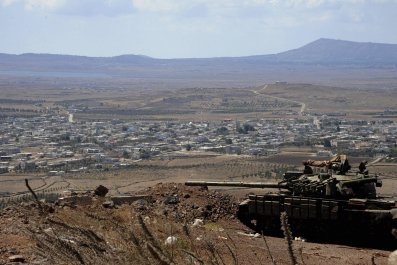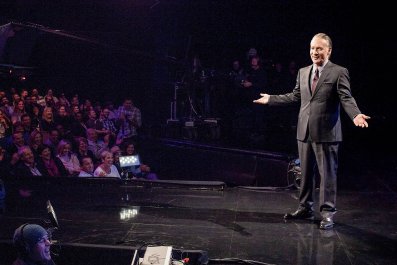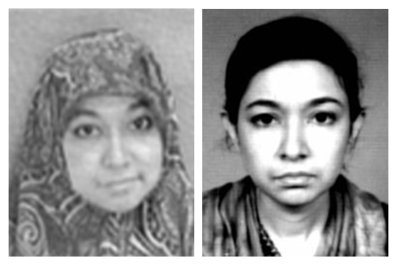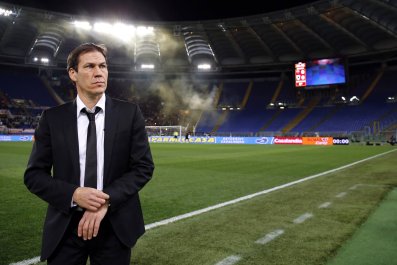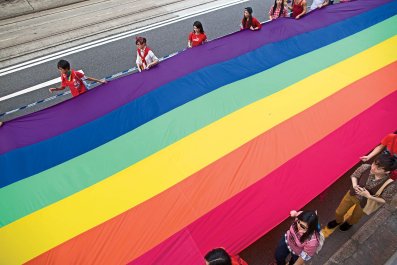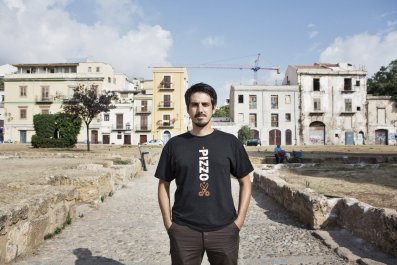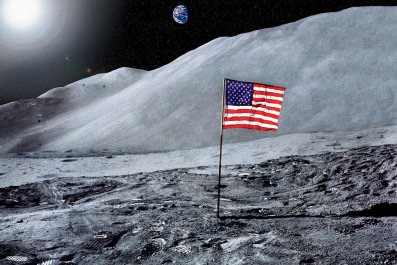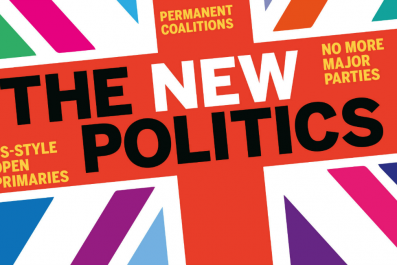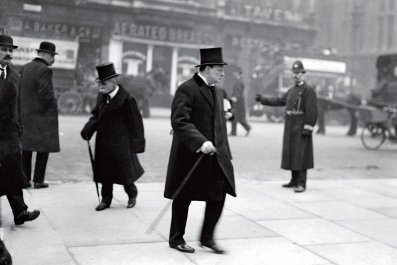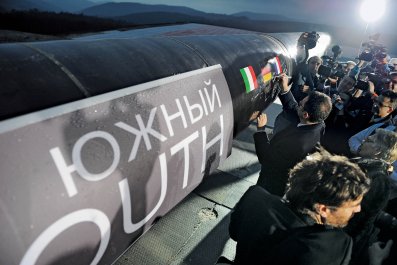On a recent evening in New York City's West Harlem neighborhood, police stopped and questioned a young black man who was walking on the sidewalk across the street from me. Within minutes, about a dozen people had paused to watch, some pulling out cellphones to shoot video.
At first I thought, Wow, these folks are serious voyeurs. But they weren't voyeurs; they were protectors.
The hell with police cams. We're entering an age of pervasive citizen cams, and that promises to alter the balance of power in human rights. George Orwell had us worried that an all-seeing government would control us. He apparently didn't think about what happens when we the people have the power to record and broadcast whatever the government does.
As Marc Andreessen commented on Twitter, posting a photo of two Ferguson, Missouri, black youths with their hands up in surrender while holding cellphone cameras: "This, I think, is one of the most significant images of our time."
Much of the world's population already carries a cellphone with a built-in camera, but that's only the beginning. Next up are tiny cameras meant to be worn all the time, recording every moment of life. Computing legend Gordon Bell, who has worked for Microsoft Research the latter part of his career, has worn just such a device since the 2003 for a project called MyLifeBits. The built-in camera in Google Glass will bring us always-on eyeglass cams. On a website called Spy Base, you can buy an $80 cam that mimics the look of a Bluetooth earpiece.
Now two companies, Safety Vision and Digital Ally, have donated body cameras to the Ferguson police to help ease tensions after the shooting of teenager Michael Brown.
Tiny cameras are one thing. Instant upload adds another dimension. Now that we have ubiquitous wireless networks—whether cellular or Wi-Fi—services like Google+ can upload video to the Web as soon as it's shot. As Philippe Kahn, who invented the camera phone in the 1990s, told Newsweek, police or soldiers or mobs who see you shooting video might smash your device. But if the file is already on its way to the Web, the toothpaste, you might say, is out of the YouTube. "The truth gets shared," Kahn says.
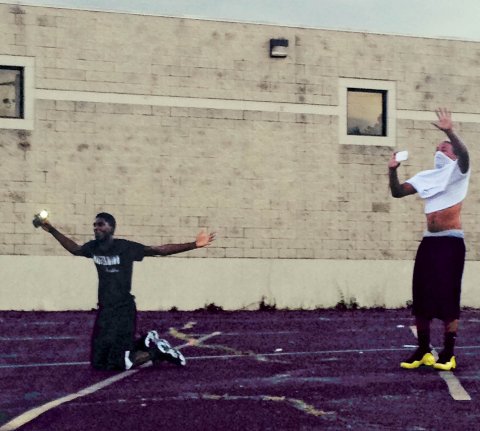
Cellphone videos have influenced public sentiment and upended policies, from the visuals of Saddam Hussein's execution to the sight of Eric Garner dying as New York City police held him in a choke hold. Videos are more visceral than any after-the-fact journalism. And videos are hard to deny. In one 2010 case in Philadelphia, police accused Askia Sabur of assaulting an officer. But a YouTube video showing the officer beating him led to Sabur's acquittal. "The democratization of gathering evidence by means of the universal camera…is an enormous development in terms of the potential for real justice," Sabur's defense attorney, Larry Krasner, declared.
More interesting, as Kahn notes, will be what happens when everyone comes to expect "that there is always someone [around] with a camera-phone." We're still in an era of being surprised when a damning video surfaces. Police today behave as they've always behaved. A video capturing police behaving badly seems to catch them off guard.
But when people know cameras might always be trained on them, there's evidence they behave differently all the time. Some of that evidence is heartening. One study that focused on video monitoring in restaurants found that workers who knew they might be on video didn't just pull back on stealing or unethical behavior—they actually channeled their energy into performing better. That raised revenue for the restaurant and increased the workers' tips. "The same people who are stealing from you can be set up to succeed," one of the study's authors, Lamar Pierce of Washington University in St. Louis, told The New York Times.
In another study, half of the police force in Mesa, Arizona, wore always-on cameras for a year. Citizen complaints about the camera-wearing officers dropped 50 percent. "Once people realize they're being videotaped, everyone's just a little politer," Mesa's police chief, Frank Milstead, told a local TV station. Perhaps the same will now happen in Ferguson, where the police recently donned body cameras.
Those benefits come when the police wear cameras and control the video. Imagine if both the police and the citizens have cameras on every interaction.
Technology is morally neutral, and always-there video could raise troubling issues that make today's National Security Agency seem as nefarious as the Muppets. Facial recognition technology is improving quickly. Police or autocrats could use it to scan video streams to track and catalog individuals, perhaps to identify political opposition. A world of persistent citizen cams is a world where privacy can't even be expected. Yell at your kid on a street corner in a moment of anger and you might find your vitriol going viral, making you the latest Alec Baldwin Parent of the Year.
In the U.S., legal issues around citizen cams aren't settled. All kinds of court rulings keep finding that citizens have the right to take video of interactions with police in public places. But it's not an explicit right protected by the Constitution and widely followed by all. Reports continue to pop up of police demanding that bystanders delete video or hand over their cellphones, and some courts have allowed that censorship. So, really, what we need is a constitutional right to bear video.
In the meantime, the leadership of any oppressed people anywhere would do well to consider the citizen camera as a powerful tool. Whether in Ferguson or West Harlem or the West Bank or Tibet, encouraging people to shoot and upload video of conflicts might be more important than asking them to take up arms.
Eric Garner's friend Ramsey Orta said it well. He shot the video of Garner being choked to death. And he says he'll do it again if he sees another incident, even if police harass him about it. "Even if they're pushing me back, I might just, like, keep going forward," Orta said. "And if I get arrested, hey, I got something on camera."



